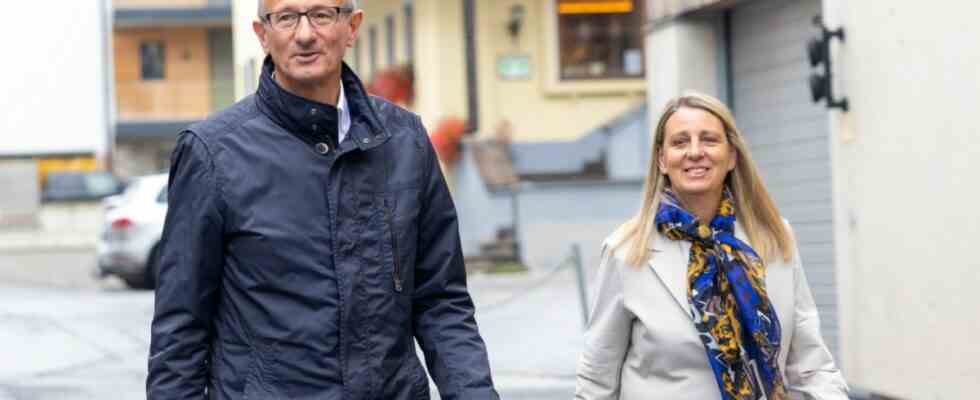The Austrian state of Tyrol has voted, and the speculation about a dramatic shift in political power has apparently only partially come true. According to initial projections, the ÖVP, which had reached 44.3 percent in 2018, now lost about ten points and only came to around 34 percent. However, since election researchers had considered a fall to below 30 percent possible in the past few weeks, the current loss among the Conservatives is considered manageable.
The ÖVP, which has governed the western federal state since 1945 and most recently formed the government in a coalition with the Greens, remains by far the strongest force in the state. If the projections come true after the polling stations close at 5 p.m., the ÖVP is likely to offer coalition talks to the SPÖ, which was able to increase by one or two points to around 18 percent.
Although the provincial capital of Innsbruck, governed by the green rule, and the postal votes could shift the result by a few points, the ÖVP felt relief after the announcement of the first figures, and even cheered: It was said that it was not as bad as it was feared that the state government would be headed by top candidate Anton Mattle.
This, for many years mayor in the small community of Galtür and most recently Economic Provincial Councilor, had taken over the baton in a difficult situation: the previous governor Günther Platter surprisingly announced in June that he would no longer be a candidate, but was still in office until the day of the election exercised. His little-known, designated successor therefore had to make himself known during the election campaign and spread an optimism that had been difficult to generate given the poor poll numbers.
The FPÖ had campaigned aggressively as usual
The actual winner of the election on Sunday evening was the FPÖ, which according to the projections should have gained about three percentage points and could be just ahead of the SPÖ. Supported by party leader Herbert Kickl, the party had conducted its usual aggressive election campaign in which inflation, the energy crisis, Covid policy and, as usual, the migration issue, along with slogans such as “departure instead of asylum fraud” played a key role. The liberal top candidate Markus Abwerzger had confidently aimed for the post of governor. However, none of the parties in the Tyrolean state parliament is prepared to form a coalition with the FPÖ at this point in time. The previous government partner of the ÖVP, the Greens, had to accept slight losses and will probably no longer play a role in the coalition negotiations.
A regional grouping, the “List Fritz” party, which emerged from a movement against transit traffic in Tyrol, was able to almost double its position to ten points at a low level. In the past few weeks, when a much more dramatic collapse of the ÖVP had been assumed in the country, there had been speculation about a left-wing coalition of three made up of SPÖ, Greens and Neos or the Fitz list; but the dismantling of the almost overpowering conservatives has only been partially successful.
A highly controversial statement that the influential Tyrolean member of parliament and cable car lobbyist Franz Hörl recently made will probably continue to characterize the ÖVP’s self-image: “Tiwag belongs to us,” he said, meaning the state’s own energy supply company, “belongs to us housing subsidies, we own the Hypobank”. With this election result, a political earthquake in Vienna is unlikely for the time being, since Chancellor Nehammer’s party was clearly able to save itself above the 30 percent mark.

